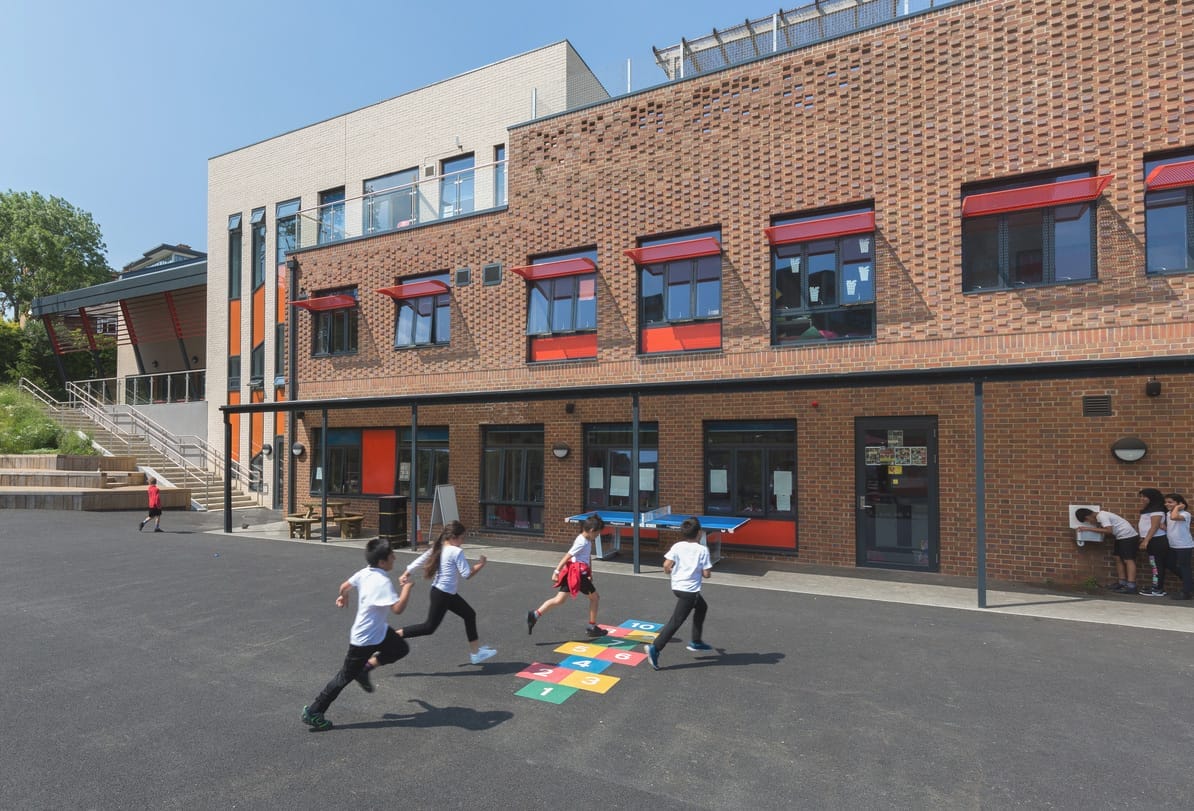
There is no disputing that Covid-19 has had a massive impact on all school pupils. But the pandemic has been particularly devastating for children with special educational needs, as well as their families and carers.
For those struggling through lack of support, the need to get children back in to school and reinstate that support has become urgent. However, it has to be safe and practical for everyone involved. Here we look at the specific challenges of returning to school for children on the Autism Spectrum, considering some of the physical restrictions of Covid-19 health and safety requirements against the typical design parameters relevant to creating inclusive spaces for people with an ASC including proxemics, compartmentalisation, sensory overload, legibility, and movement.
Children with an Autistic Spectrum Condition (ASC) may have found home-schooling difficult at the beginning of Lockdown. However, over several months, many will have adapted to become comfortable with learning in the home environment, seeing it as a place of safety during the pandemic.
Typically, children with an ASC don’t respond well to change, so returning to their school which may now look and operate differently, may come with additional challenges for these pupils. To mitigate potential issues for pupils, prior to the start of school, good communication between the school and the child and their families/carers will be vital to help pupils understand and settle into their ‘new‘ environment as fast as possible.
Below we list some of the physical changes to school environments that a child with an ASC can expect to see:
Learning spaces
Class sizes within special schools are generally much smaller than mainstream schools, so potentially there may be minimal changes required. However, they may look a bit different such as:
- Changes to desk positions and spacing – desks may need to be positioned further apart to maintain social distancing and may need to be re-orientated. Schools will need to incorporate ‘movement’ breaks and ideally identify where pupils can retain ‘their’ original place in the classroom to avoid any unnecessary anxiety.
- Doors – may need to be propped open to encourage ventilation flow and reduce contact with handles. Consideration needs to be given to avoid creating additional sensory distractions generated from adjacent spaces such as noise and smells.
- Sharing of play or educational equipment – this should be avoided to minimise the spread of infection but may cause distress to children who want a particular item that another child has, or if a favourite item is no longer available to them.
Teaching outside – although largely beneficial particularly for well-being, pupils with an ASC may need additional assistance to help them differentiate between learning and break or social time.
Therapy and sensory spaces
These are critical spaces that are generally used on an individual or very small occupancy basis, with an enhanced cleaning regime and ensuring staff are adequately protected, these should be able to continue to be used. Availability of these spaces may become more limited as additional time will be required to clean spaces thoroughly, which may have an impact on timetabling, meaning less availability. In the short-term schools may need to think about alternative spaces to supplement support spaces such as offices for counselling or areas that can easily be adapted to support multiple functions for play and therapy.
Dining and halls
As a result of social distancing requirements, dining in hall spaces may offer children with an ASC an improved environment, as there will be less sensory issues related to noise, smell and proximity to others. However, alternative spaces for dining may still need to be provided for those who require additional privacy or specific medical needs.
Additionally, as whole school assemblies will become a thing of the past, for the short term at least, children with SEN may prefer smaller assemblies. Halls could also provide additional space for break out and teaching depending on existing accommodation constraints.
Circulation
In many schools, including special schools, one-way systems of circulation supplemented with graphical and directional signage is being introduced. Most special schools have significantly lower numbers of pupils compared with mainstream schools, and some schools benefit from generous corridor spaces. However, schools may choose to stagger times children move between classrooms or at break and lunch times to mitigate cross-over.
Toilets
Limitations may be introduced to the number of pupils using toilet suites to one at a time, which will significantly reduce the number of toilets available. Schools will need to consider toileting needs on an individual basis and develop strategies to suit this. Some schools may be fortunate to have individual pupil toilets that combine both toilets and wash-hand basin within the same space and therefore toilet numbers effectively remain the same. Queuing strategies outside both styles of toilets will need to be considered.
Conclusion
The need to get children, particularly those with an ASC, back into school safely and enable them to receive the crucial support, therapy, and wider socialisation they require to thrive, should be a priority.
We also need to recognise that there are positive lessons within the ongoing circumstances that can help us collectively learn and grow, and hopefully trigger a wider re-think at a higher, long-term level. In doing so, we are not only improving the way our children are taught and in what types of environments, but also safeguarding our education system from another major disruption in the future.
To discuss an upcoming SEN project, please contact Catherine direct here.


